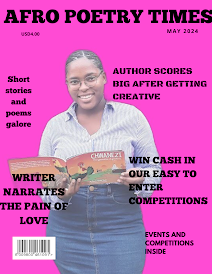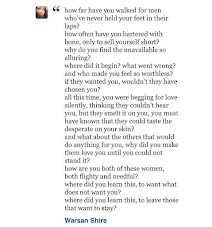Like a ray of sunshine, Lindani Mbunyuza-Memani ' s memory of her rural Eastern Cape childhood fires her novel Buried in the Chest, which has just won Jacana ' s 2024 Dinaane Debut Fiction Award.
Speaking from her new home in the US, MbunyuzaMemani said yesterday she was born in the Dutywa village of Ngxakaxa and vividly remembered her early years there.
"My village was immersed in open spaces with gardens, hills, trees and plants.
"Today, I love breathing in, and touching and feeling textures. I imagine running my hand on the bark of trees.
"Landscapes and the environment help me bring life to the stories I tell.
"In my novel, the village which raises Unathi is called Moya. It's named after its winds. The winds are disruptive but the villagers live with them."
She said for as long as she could remember in Ngxakaxa, an elderly lady had lived alone next door to her family's house.
"At certain times during the year, her garden would be alive with sunflowers.
"I used to enjoy looking at them. My sister would say sunflowers know sadness.
"Now, there are sunflowers in Buried in the Chest."
Mbunyuza-Memani said she was always happy to talk to people about Ngxakaxa, and to regale her students at Southern Illinois University, where she teaches English, with descriptions of the place and the people.
"I love my village and the community there.
"Sometimes I write a character with traits that remind me of 10 different people from home.
"I squeeze those characteristics into one person.
"Growing up, I walked to the river. We'd fetch water and wash our clothes there.
"Those activities are in my novel. "
Years before she sat down to write the book, she was able to use this rapport with the environment when she was hired in 1999 straight out of the then-PE Technikon to work on the landmark Trees for PE Project.
She said she had gone from high school at St James in Cofimvaba to tech, and had no work experience, but she had loads of energy, and project manager Sue Spies, with whom she is still friends, took her on.
"' Spiesy ', as I call her, shaped my work ethic.
"And like any place where I have lived, PE is in my DNA, my imagination and my stories.
"Without me studying in Gqeberha, there's no current me. I'm not married to Yanga and we are not raising two teenagers — a girl, Liya, 16, and a boy, Daza, 13."
Mbunyuza-Memani said her novel was rooted in SA's predemocracy period of apartheid, and told the story of Unathi, how she was raised by her gogo, and how she journeyed through lesbian and interracial love.
"The village of Moya and the absence of mothers there comes from the impact of women seeking work in the cities.
"But there are other layers folded in, like the role of villagers in gendered responses to pregnant, unmarried young girls and women.
"I thought a lot about the absence of repercussions and the muted negative talk when boys father a child.
"This is not the treatment girls receive when they are pregnant and become young mothers.
"But most of all Buried in the Chest is the story of Unathi's search for her mother, Mavis."
Mbunyuza-Memani said after her stint at Trees for PE, and now newly married, she had enrolled at the University of Port Elizabeth, and had emerged with her first master's degree.
After her move to the US, she acquired two more master's degrees in English literature and creative writing, and a doctorate in mass communication and media arts.
She said she had plenty of plans for her future.
"Before I exit the world, I want to be a truck driver.
"I admire the work truck drivers do hauling food and car parts and letters and clothes and furniture and everything else humans want.
"I've worked as a receptionist, a secretary, a spokesperson, a part-time teacher, and now an English professor.
"But I've also been unemployed and despondent."
She said her message to young people was to roll with the punches.
"It is OK to not have the rest of your life figured out by the time you're 16, 18 or 21.
"Still, try to have a plan.
"Don't be five years older and be tied to how you thought and behaved years ago.
"Have fun. Cry about rejections, disappointments and pain.
"Find a way to move past, move on, and move up.
"Dream new dreams, irrespective of your age."
She said she tried to "live my life through questions".
"I ask a lot of questions because I am curious, and because I don't immediately gravitate towards norms.
"I also ask myself a single question every night: What do I know now that I didn't know when I woke up? It's a way to plan for tomorrow."













